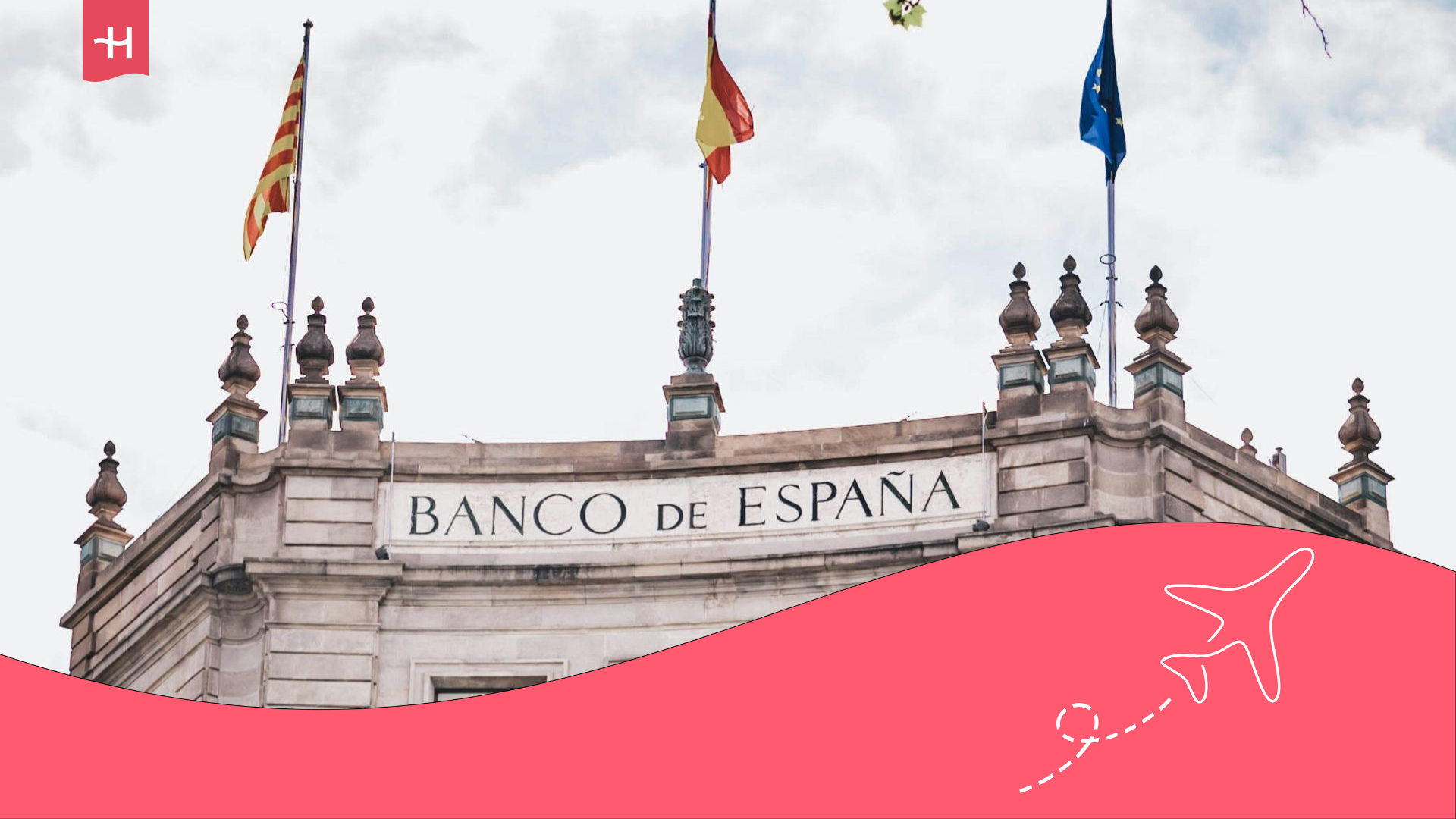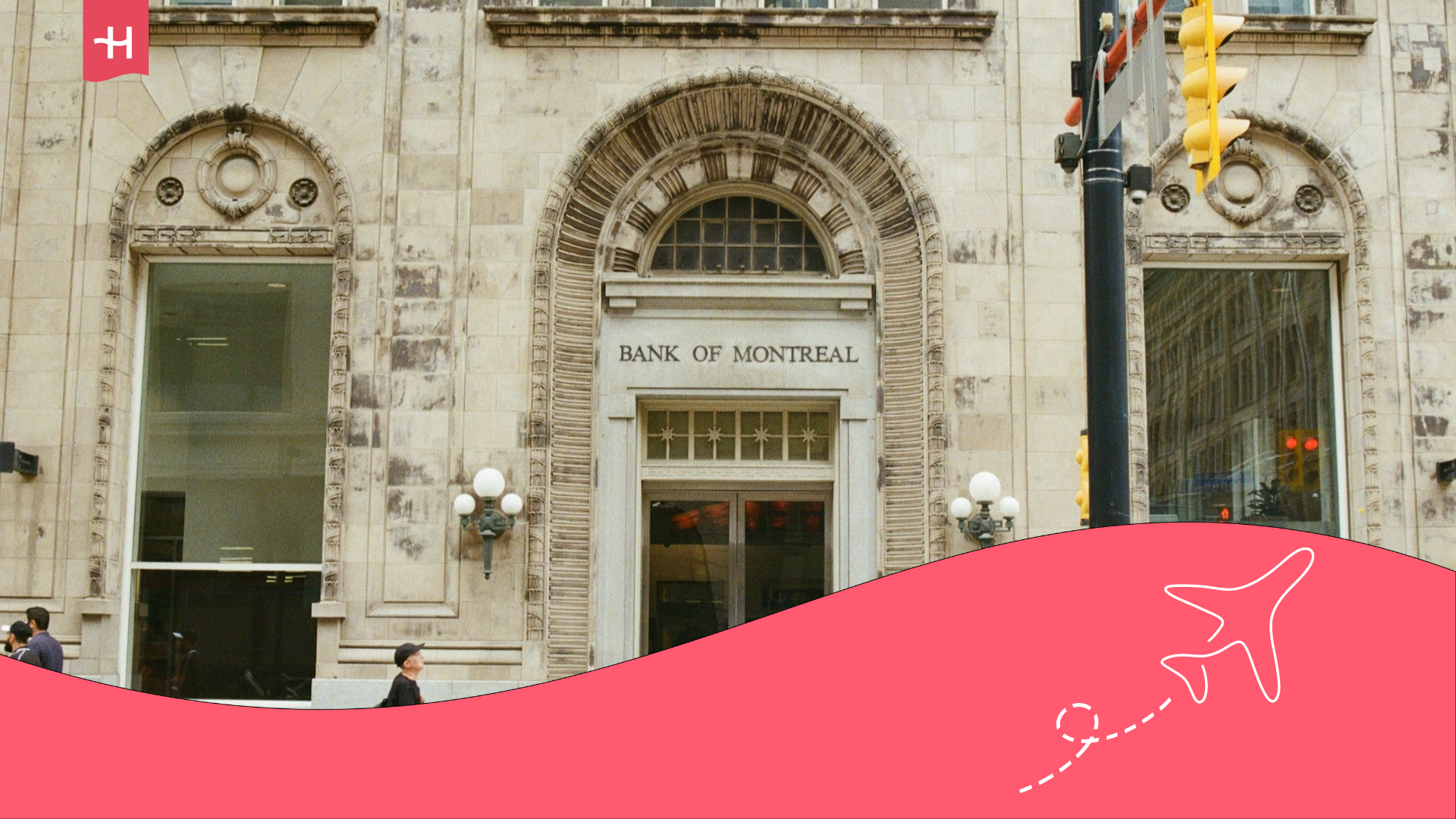Best banks in Germany for foreigners: Make your choice
German banking is recognized for its solidity and security. We list the best banks in Germany for foreigners. Check out this post!
Knowing the best banks in Germany for foreigners can make your life much easier. A local bank account is essential for things like renting an apartment, getting paid, or setting up automatic bill payments. Germany is a diverse and multicultural country, home to people from all over the world who have settled here to work, study, or simply enjoy life in the land of the Black Forest.
Germany boasts the most powerful economy in Europe and a banking system known for its security and reliability. In this guide, we’ll explore the different banking options for foreigners, breaking down their benefits and drawbacks. Our goal is to help you find the bank that best suits your needs.
Why open a bank account in Germany?
Whether you’ve moved to Germany permanently or are staying temporarily as a digital nomad, employee, business owner, student, or investor—or if you’re simply exploring the country—it’s important to know which banks cater to foreigners. Choosing the right account for your personal or professional needs will help you get the best rates and services.
Having a reliable bank to keep your money safe and guide you through financial services is essential when living in a foreign country. In Germany, a bank account is necessary for many everyday transactions, including receiving your salary, paying for subscriptions and insurance, applying for loans or mortgages, and even renting an apartment.
Most banks in Germany are well-equipped to serve international customers, offering multi-currency accounts and multilingual support. They’ve also embraced digital banking, providing user-friendly websites and mobile apps. This makes banking accessible not only to locals but also to a diverse international clientele.
Requirements to open a bank account in Germany
Opening a bank account in Germany as a foreigner comes with certain requirements. Digital banks often have a simpler process for basic accounts, but understanding the necessary steps can make the process much smoother. Here are the key documents you’ll need to provide:
- Valid identification: Passport or national identity card.
- Proof of address: Residence registration document (Meldebescheinigung) or rental contract.
- Tax identification number (TIN): You need to provide a tax identification number from your home country or the German one (Steuer-ID).
- Proof of income or employment: Some banks may ask for a letter from your employer or employment contract if you are going to deposit your payroll.
- Credit history (optional): Certain products such as credit cards may require a good credit history in the German system (Schufa).
- Initial deposit: A minimum opening deposit may be required.
- Completed application: Fill out a form either online or in person.

Types of banks with services for foreigners in Germany
In Germany, foreigners can choose from three main types of banks: neobanks, local banks, and international banks. Each caters to different needs, so it’s important to consider which option best aligns with your lifestyle and financial goals.
Neobanks or digital banks
Neobanks are fully digital banks that operate online without physical branches. They’re becoming increasingly popular due to the convenience of handling all banking tasks through your phone or computer. These banks often offer simple processes, multilingual services, and low fees. Here are some examples:
| Digital bank | Advantages |
| N26 | No maintenance fees and cheap international transfers. |
| Revoult | Multi-currency accounts, perfect for travelers. |
| Wise | Multi-currency payments, recommended for international transfers. |
Local banks
Local banks in Germany are deeply rooted in the country, recognized for their reliability, reputation, and security. They have branches throughout the regions and offer personalized services for products like accounts, mortgages, and investments. These banks are particularly favored by German citizens, especially older generations who prefer face-to-face interaction. Here are some examples:
| Digital bank | Advantages |
| Sparkasse | Highly reputable, offers all types of services. |
| Volksbank | Focuses on small businesses and offers personalized service. |
| Commerzbank | Customer service in English and products for foreigners. |
International banks
For foreigners looking for a bank in Germany that allows international transactions, international banks are the best choice. These banks offer multi-currency accounts, facilitate global transactions, and provide specialized financial services for foreigners. Here are a few examples:
| Digital bank | Advantages |
| Deutsche Bank | German, but has an international service in more than 70 countries. |
| HSBC | Multi-currency accounts and investment advice. |
| Citibank | Access to financial services in several countries. |

Important: If you are a frequent traveler and want to stay connected without worrying about expensive roaming or looking for a new SIM at every destination, Holafly’s subscription plans are for you. With a single eSIM, enjoy internet in more than 170 countries for a fixed price and no surprises on your bill. travel without limits and connect easily and securely! 🚀🌍

Top 5 banks in Germany for foreigners
Germany has a robust banking system with cutting-edge technology and global accessibility. The country’s banks have evolved to meet the needs of its diverse population, including expats, students, and international workers. Here, we’ve compiled a list of the top five banks in Germany for foreigners.
Deutsche Bank, for professionals and expats
Founded in 1870 to facilitate international trade transactions, this German bank has built a strong legacy over its 150-year history. Today, it stands as one of the largest investment and financial services banks in the world, with a presence in over 70 countries.
- Basic current account (AktivKonto): For daily expenses, with a monthly fee starting at 6.90 euros ($7.24).
- Premium account (BestKonto): Includes additional benefits such as travel insurance and international transfers, starting at 14.90 euros per month ($15.64).
- Additional services: Investment management and financial advice in English.
- ATMs and branches: Over 2,500 branches throughout Germany and access to the Cash Group network for free withdrawals.
- Opening hours: Monday to Friday, 8:00 am to 6:00 pm.
- Digital channels: Online banking and app in English and German.
| Advantages | Disadvantages |
| Solid reputation | High monthly fees on premium accounts |
| Extensive branch and ATM network | Account opening can be a slow process |
| Multilingual service |
N26, for travelers and those looking for a digital solution
N26 is a top neobank in Europe, known for its fully digital operations. It’s a great choice for foreigners in Germany, particularly for those who travel frequently between countries. You can open an account entirely online and get started the same day. Although headquartered in Berlin, N26 serves several European countries and has also expanded to the United States. Some of its key features include:
- Standard Account: Free account with virtual debit card and free withdrawals.
- You Account: Intended for frequent travelers, with insurance and free international withdrawals for 9.90 euros per month ($10.39).
- Additional services: Multi-currency management and budgeting tools.
- ATMs and branches: No physical branches, withdrawals can be made from MasterCard ATMs.
- Opening hours: 24/7 support in English through chat.
- Digital channels: Simple and intuitive app for financial management.
| Advantages | Disadvantages |
| Fast account opening | No physical branches |
| Free basic account | Limited ATM withdrawals per month in the free version |
| 24/7 customer service |
Commerzbank, recommended for students and families
Founded in 1870, this is one of the oldest banks in Germany, known for its personal service to families and small businesses. With 1,000 branches across the country, it also operates in over 50 countries. Here are the types of accounts they offer:
- Commission-free account: Free if you have your salary paid in by direct debit or have regular income.
- Premium account: Benefits such as insurance and additional cards, for 12.90 euros per month ($13.54).
- Additional services: Different savings products and personal loan offers.
- ATMs and branches: Over 1,000 branches and access to the Cash Group network.
- Opening hours: Monday to Friday, from 9:00 am to 4:00 pm.
- Digital channels: Online banking and app available in English and German.
| Advantages | Disadvantages |
| Basic accounts without commissions | Limited opening hours |
| Multiple financial products | Premium account with high fees |
| Extensive branch network |
Sparkasse, designed for day-to-day operations
Founded in 1778, this is considered the oldest bank in Germany. It was created to help locals with their daily financial needs and is known for its personal, friendly service. Today, it has also adapted to the country’s cultural diversity and offers special services for foreigners. Here are some of its main offerings:
- Basic Account: For day-to-day operations, with fees starting at 3 euros per month ($3.15).
- Savings accounts and investment plans: Tailored to different financial goals.
- Additional services: Insurance, mortgages and specific products for small businesses.
- ATMs and branches: Over 400 banks throughout Germany.
- Opening hours: Monday to Friday, 8:30 am to 5:00 pm, depending on the region.
- Digital channels: Mobile banking app compatible with various devices.
| Advantages | Disadvantages |
| Local community support | Variable rates by region. |
| Wide network of branches and ATMs | Not suitable for large companies. |
| Low rate on basic account |
Wise, international transfers and accounts
Wise is a great choice for foreigners in Germany, known for its affordable international transfers and support for multiple currencies. Being a digital bank, it offers lower fees. Here are some of the services it provides:
- Wise account: Free in over 50 currencies.
- Debit card: Payments and withdrawals in different currencies at the actual exchange rate.
- Additional services: Fast international transfers.
- ATMs and branches: No physical branches.
- Opening hours: Support in English and other languages, by chat and email.
- Digital channels: User-friendly platform and app.
| Advantages | Disadvantages |
| Multiple currencies | No physical offices |
| Accounts without commissions | No loans or mortgages |
| Fast and economical transfers |

Which is the best bank for foreigners in Germany?
We’ve reviewed some of the best banks in Germany for foreigners, but the choice of which one is best for you will depend on your individual circumstances. Your personal or professional situation, financial needs, and savings will all play a role. To help you decide, we’ve put together a summary of the key features of each bank in the table below.
| Bank | Recommended | Rates | Digital channels | Availability |
| Deutsche Bank | Foreigners with high income or business | From 6.90 euros per month ($7.24) | Excellent | Over 500 branches in Germany |
| N26 | Young and digital foreigners | Free and premium plan from 4,90 euros ($5,14) | Excellent | Online only |
| Commerzbank | Foreigners in need of financing | Free account if requirements are met | Good | Over 1,000 branches in Germany |
| Sparkasse | Foreigners who want local care | Rates vary by region | Limited | Savings banks in all regions |
| Wise | Foreigners with international operations | Free plans and low-cost transfers | Excellent | Online only |
To sum up, if you’re looking for digital banking, Wise is a great option with its free accounts and low fees on international transfers. However, if you prefer a physical bank and want to avoid maintenance fees, Commerzbank would be a solid choice.
Steps to open a bank account in Germany
Now that you’ve decided which bank is right for you, let’s go over the steps to open an account. While each bank has its own specific requirements, opening an account with an online bank is typically easier than with a traditional one. That said, there are some general steps that apply across all banks.
- Gather important documents: Passport, proof of residence, proof of income and tax identification number.
- Make an appointment: Visit a physical branch and schedule an appointment with a sales representative. If the banking is online, fill in the form on the website.
- Complete the verification process: Physical banks verify the documentation in person and online banking does it by video call or scanning.
- Activate your account: Once your application is approved, you will have access to online banking, ATMs, cards, etc.
Germany offers a broad selection of local, international, and digital banks, catering to both locals and foreigners with services tailored to students, businesses, workers, and investors. While opening an account is a simple process, it does have strict requirements. Be sure to go through the details in this article carefully and take action to protect your finances!
Frequently asked questions about banks in Germany for foreigners
While it’s not required, there may be situations where you’ll be asked to have a bank account, such as for receiving your salary, setting up direct debits, and so on.
Traditional local banks typically require proof of residency, but digital banks like Wise and N26 don’t have this requirement.
N26 and Commerzbank are highly recommended for students because of their low fees and because they offer specific accounts for this sector.
It depends on the bank; some, like digital banks, offer free accounts. Among traditional banks, Deutsche Bank offers the lowest fee at 6.90 euros per month ($7.24).
Yes, all banks today allow this type of transfer. For instance, Wise is a digital bank that charges a minimal fee for these transactions.





 Language
Language 


















 No results found
No results found








